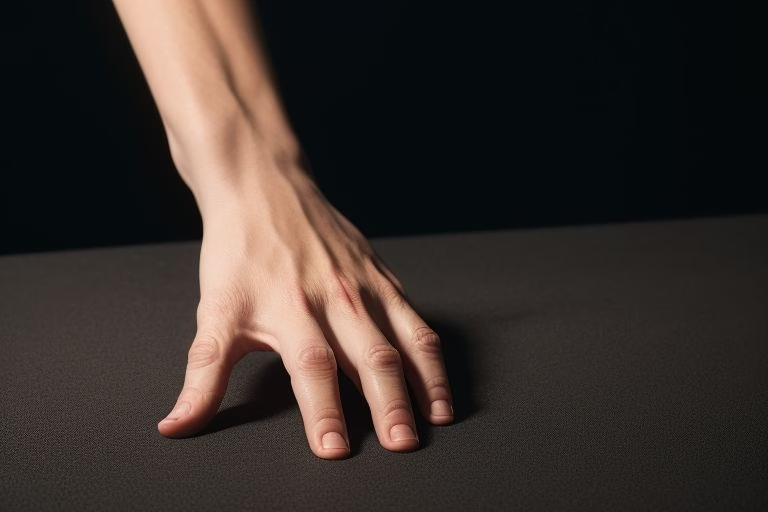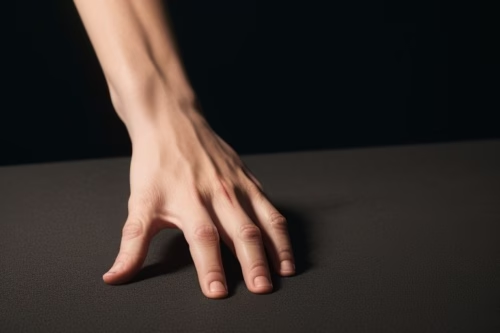
Experiencing an itchy wrist can be both annoying and concerning. Whether it’s a fleeting irritation or a persistent discomfort, understanding why your wrist is itchy is key to finding relief. In this comprehensive guide, we’ll explore the causes, symptoms, home remedies, medical treatments, and preventive measures associated with this common issue. With insights drawn from trusted sources and expert advice, you’ll learn how to tackle an itchy wrist and maintain healthy skin.
An itchy wrist is more than just a minor irritation. It can sometimes signal an underlying condition that needs attention. In our fast-paced world, stress, environmental factors, and lifestyle choices often contribute to skin irritations. If you’ve ever found yourself scratching your wrist is itchy area, you’re not alone. Millions of people experience this discomfort, and understanding the root causes is the first step toward effective treatment.

The goal of this article is to provide you with an all-encompassing resource that not only explains why your wrist is itchy but also offers practical solutions to bring you lasting relief. We’ll dive into common causes, home remedies, and preventive measures, backed by expert advice and reputable sources such as Healthline and Mayo Clinic.
Understanding the Itch: Why Your wrist is itchy
When your wrist is itchy, it’s important to understand that itching is your body’s natural way of signaling irritation or an abnormal reaction in the skin. Itchy wrist discomfort can arise from a variety of factors, ranging from simple dry skin to more complex conditions such as eczema or allergic reactions.
The Science Behind Itching
Itching, medically known as pruritus, is a sensation that compels you to scratch. This reaction can be triggered by chemical signals in the body, often due to histamine release in response to irritants or allergens. When you scratch an itchy area, it temporarily relieves the discomfort, but it can also exacerbate the irritation if done excessively.
For a deeper understanding of how skin reacts to irritants, check out this detailed explanation on WebMD’s overview of itching.
Common Causes of an Itchy Wrist
Understanding why your wrist is itchy is crucial for choosing the right treatment. Below are the most common causes:
Dry Skin
One of the most common reasons your wrist is itchy is due to dry skin. When the skin loses its moisture, it becomes prone to cracking, flaking, and irritation. This is especially common during the winter months or in environments with low humidity.
- Key Tip: Regular moisturizing can help prevent dryness and soothe an itchy wrist. For more information on skin hydration, visit Healthline’s skin care guide.
Allergies and Irritants
Contact with certain chemicals, metals, or even fabrics can trigger an allergic reaction, leading to contact dermatitis. If your wrist is itchy after wearing a new watch, bracelet, or even after exposure to cleaning agents, it might be an allergic response.
- Example: Nickel, a common metal in jewelry, is a frequent allergen.
- Key Tip: Consider hypoallergenic alternatives if you notice a pattern of irritation.
Skin Conditions
Several skin conditions can cause your wrist is itchy. These include:
- Eczema: A condition where the skin becomes inflamed, red, and itchy.
- Psoriasis: Characterized by red, scaly patches that may cause intense itching.
- Key Tip: Understanding your skin’s specific condition is crucial. Learn more about eczema and its management on Mayo Clinic’s website.
Infections
Infections, both bacterial and fungal, can lead to an itchy wrist. For instance, fungal infections like ringworm can cause a red, circular rash accompanied by itching.
- Key Tip: Over-the-counter antifungal creams may help, but persistent symptoms require professional treatment.
Systemic Conditions
Sometimes, an itchy wrist is not just a local issue but a symptom of a systemic condition. Diseases such as diabetes or thyroid disorders can have skin manifestations that include itching.
- Key Tip: If you have other symptoms or a known systemic condition, consult your healthcare provider to address the underlying issue.
Identifying the Symptoms
Recognizing the symptoms that accompany an itchy wrist can help you determine its cause and decide on the next steps for treatment. Common symptoms include:
- Redness and Inflammation: Often seen in cases of dermatitis or allergic reactions.
- dry, Flaky Skin: A hallmark of dry skin or eczema.
- Swelling: May indicate an allergic reaction or infection.
- Rash or Bumps: Can occur with conditions like eczema or psoriasis.
- Pain or Burning Sensation: Especially when scratching leads to further skin damage.
Remember: If you notice signs of infection (such as pus or increased pain), or if the itching becomes unbearable, it’s essential to seek medical advice promptly.
Effective Home Remedies and Self-Care Tips
Many cases of an itchy wrist can be managed effectively with home remedies. Here are some tried-and-tested solutions:
Moisturizing
Keeping your skin hydrated is the first line of defense against an itchy wrist. Use a fragrance-free moisturizer several times a day, especially after washing your hands.
- Pro Tip: Look for products containing ceramides or hyaluronic acid to lock in moisture.
Cool Compress
A cool, damp cloth applied to the affected area can reduce itching and soothe inflammation. This is especially helpful if the itchy wrist is due to an allergic reaction or minor irritation.
Oatmeal Baths
Oatmeal is known for its soothing properties. Adding colloidal oatmeal to a lukewarm bath can help relieve the discomfort of an itchy wrist and other areas of dry, irritated skin.
- External Resource: Check out Medical News Today’s guide on oatmeal baths for more details.
Over-the-Counter Creams
Antihistamines and hydrocortisone creams can provide temporary relief from an itchy wrist. These are especially useful if the itching is due to an allergic reaction.
- Key Tip: Always follow the instructions on the packaging and consult a pharmacist if you’re unsure about the dosage.
Avoiding Irritants
If you suspect that certain substances are triggering your itchy wrist, try to avoid them. This might mean switching to hypoallergenic skincare products or avoiding exposure to harsh chemicals.
- External Resource: Learn more about avoiding common irritants on Verywell Health.
Stress Management
Believe it or not, stress can exacerbate skin conditions, including an itchy wrist. Incorporating stress-reducing techniques such as meditation, yoga, or regular exercise into your routine can help manage symptoms.
- Pro Tip: Even a short daily meditation session can work wonders for your overall skin health.
When to Seek Professional Medical Advice
While home remedies can be effective for mild cases, there are times when professional intervention is necessary. Consider consulting a healthcare provider if:
- Persistent Itching: Your wrist is itchy for several weeks without any improvement.
- Severe Symptoms: There is significant swelling, pain, or the area becomes infected.
- Underlying Conditions: You suspect that a systemic condition may be causing your symptoms.
- Uncertain Diagnosis: If you’re unsure about the cause of your itchy wrist, it’s better to get a professional opinion.
For more detailed guidelines, refer to Mayo Clinic’s recommendations on skin conditions.
Preventive Measures to Keep Your Skin Healthy
Prevention is always better than cure. Here are some strategies to help ensure that your wrist is itchy episodes are minimized:
Maintain a Consistent Skincare Routine
- Daily Moisturizing: Incorporate a routine of applying moisturizer to your wrists and other exposed areas.
- Gentle Cleansing: Use mild, fragrance-free cleansers to avoid stripping the skin of its natural oils.
Protect Your Skin from Environmental Factors
- Weather Protection: In cold weather, cover your wrists with gloves to protect against dry air.
- Sun Protection: Use sunscreen even on your wrists to prevent UV damage, which can lead to dryness and irritation.
Choose Skin-Friendly Products
- Hypoallergenic Options: Opt for products that are designed for sensitive skin.
- Avoid Harsh Chemicals: Read labels carefully and steer clear of products that contain known irritants.
Monitor Your Diet and Hydration
- Stay Hydrated: Drinking plenty of water helps maintain skin moisture from the inside out.
- Balanced Diet: Consuming a diet rich in vitamins and antioxidants can support overall skin health.
Regular Exercise and Stress Reduction
- Physical Activity: Exercise increases blood flow, which can help improve skin health.
- Mindfulness Practices: Techniques such as yoga and meditation not only reduce stress but also have a positive impact on your skin.
For further tips on preventive skincare, visit American Academy of Dermatology.
Lifestyle Changes and Advanced Treatments
For some individuals, persistent wrist is itchy may require more than just home remedies. Adopting certain lifestyle changes and considering advanced treatments can make a significant difference:
Prescription Medications
If over-the-counter products fail to provide relief, your healthcare provider might prescribe:
- Topical Steroids: To reduce inflammation and itching.
- Immunomodulators: Particularly for chronic skin conditions like eczema.
- Antihistamines: To combat severe allergic reactions.
Phototherapy
For chronic skin conditions, phototherapy using controlled ultraviolet light may help reduce symptoms. This treatment should only be done under strict medical supervision.
- External Resource: Learn more about phototherapy options at Cleveland Clinic’s dermatology section.
Alternative Therapies
Some patients find relief with alternative treatments such as:
- Acupuncture: May help in reducing stress and skin inflammation.
- Herbal Remedies: Ingredients like aloe vera, chamomile, and calendula are known for their soothing properties.
- Dietary Supplements: Omega-3 fatty acids and vitamin D supplements might improve skin health when taken as directed.
Digital Detox and Reduced Screen Time
Excessive screen time and digital stress can contribute to overall stress levels, indirectly impacting your skin. Consider regular digital detoxes to keep stress and its effects on your skin in check.
Regular Skin Examinations
For those with chronic issues, scheduling regular skin check-ups can help catch potential problems early. Dermatologists can provide personalized advice and monitor the effectiveness of your treatments.
Implementing these lifestyle changes can offer long-term benefits, not only for your wrist is itchy condition but for overall well-being.
Frequently Asked Questions (FAQs)
Q1: What are the most common reasons my wrist is itchy?
A: The most common reasons include dry skin, allergic reactions, and skin conditions such as eczema or contact dermatitis. In some cases, infections or systemic conditions can also cause the itch.
Q2: Can changing my watch or bracelet help?
A: Yes, if you suspect your itchy wrist is due to an allergic reaction to nickel or other materials in your accessories, switching to hypoallergenic options can reduce irritation.
Q3: Are home remedies effective for an itchy wrist?
A: For mild cases, home remedies like moisturizing, cool compresses, and oatmeal baths are often effective. However, if symptoms persist, it’s important to seek professional advice.
Q4: When should I see a doctor about my itchy wrist?
A: Consult a healthcare provider if the itching is severe, persists for more than a few weeks, or is accompanied by other symptoms such as swelling, pain, or signs of infection.
Q5: How can I prevent my wrist is itchy episodes?
A: Maintaining a consistent skincare routine, avoiding irritants, protecting your skin from harsh environmental factors, and managing stress are all effective preventive measures.
For more FAQs and detailed advice, check out this comprehensive resource from Healthline’s FAQ section on skin issues.
Conclusion
An itchy wrist might seem like a minor nuisance, but it can sometimes be a sign of an underlying condition that needs attention. By understanding the causes—from dry skin and allergies to more complex skin conditions—and applying the remedies and preventive measures discussed above, you can take proactive steps toward maintaining healthy skin.
Whether you’re managing an occasional bout of irritation or dealing with a chronic condition, the key is to listen to your body and act early. Remember that a consistent skincare routine, combined with healthy lifestyle choices and stress management, can greatly reduce the frequency and severity of an itchy wrist.
For further reading and expert advice on skin care, you might find these external resources helpful:
- Healthline: Itchy Skin Causes and Treatments
- Mayo Clinic: Eczema Overview
- American Academy of Dermatology: Skin Care Basics
Incorporate these strategies into your daily routine, and you’ll be well on your way to not only understanding why your wrist is itchy but also achieving lasting relief and healthier skin. Stay informed, stay proactive, and embrace a lifestyle that supports your skin’s well-being.
Final Thoughts
No matter the cause, dealing with an itchy wrist doesn’t have to be a constant struggle. With the right mix of self-care tips, professional advice, and preventive measures, you can address this common issue head-on. Keep experimenting with what works best for you and don’t hesitate to seek professional help if the symptoms escalate. Your skin is your body’s largest organ, and taking care of it should be a priority.
By following the guidelines and tips laid out in this article, you’re well-equipped to manage an itchy wrist effectively, improve your skin health, and even help others by sharing these insights. Remember, every step you take towards better skin care is a step towards a healthier, more confident you.
For more detailed articles on similar topics, consider exploring Verywell Health and Cleveland Clinic which offer extensive resources on skin health and related issues.
This in-depth guide is designed to be your go-to resource whenever you find that wrist is itchy. With actionable advice, expert insights, and trusted references, you now have everything you need to combat the discomfort and understand your body better. Embrace these strategies and transform your skin care routine today!
Remember to consult your healthcare provider for personalized advice tailored to your unique situation. Stay healthy, stay informed, and take control of your skin health!



